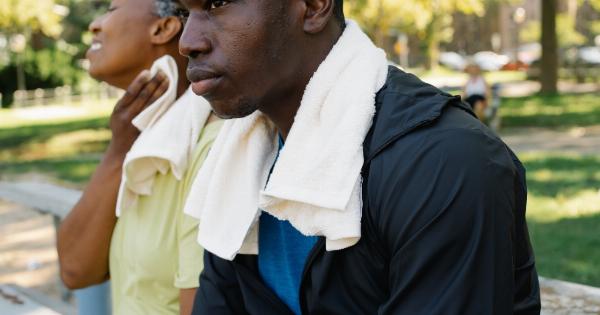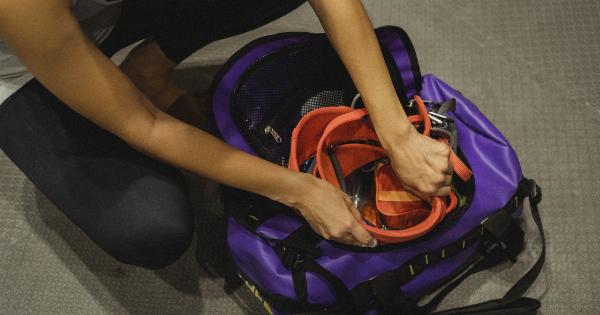As temperatures rise during summer months, heat-related illnesses become more common. While anyone can suffer from heat exhaustion or heat stroke, certain groups are at a higher risk.
Understanding who is most vulnerable can help prevent serious health issues and even save lives. Here are some individuals and groups that are at high risk for heat-related illnesses:.
Elderly Individuals
The elderly are at a higher risk for heat-related illnesses due to their decreased ability to regulate body temperature.
As people age, their bodies become less efficient at producing sweat and regulating body heat, which can lead to heat exhaustion and heatstroke. Additionally, many elderly individuals take medications that can also impact the body’s ability to regulate temperature.
Young Children
Like the elderly, young children are also at a higher risk for heat-related illnesses. Children tend to have a higher body surface area in relation to their weight, making it harder for them to cool down effectively in hot weather.
Additionally, children may not have fully developed their sweating mechanisms, which can make it harder for them to regulate body temperature.
People with Chronic Medical Conditions
People with chronic medical conditions such as heart disease, diabetes, and obesity are also at a higher risk for heat-related illnesses.
These conditions can affect the body’s ability to regulate temperature, making it harder for individuals to stay cool and hydrated.
Outdoor Workers
Outdoor workers, especially those who perform physical labor such as construction workers, landscapers, and farmers, are at a higher risk for heat-related illnesses due to their prolonged exposure to the sun and heat.
These workers may also be required to wear protective clothing or equipment that can make it harder to cool down and regulate body temperature.
People Without Access to Air Conditioning
People who do not have access to air conditioning, whether due to financial reasons or where they live, are at a higher risk for heat-related illnesses.
Without a way to cool down, their bodies may become overwhelmed by the heat, leading to dehydration, heat exhaustion, and potentially heatstroke.
Athletes
Athletes who train or compete in hot weather are also at a higher risk for heat-related illnesses. The physical exertion coupled with high temperatures and humidity can lead to dehydration, heat exhaustion, and heatstroke.
Pregnant Women
Pregnant women are at a higher risk for heat-related illnesses due to the additional stress on their bodies. Pregnant women also have an increased need for water and nutrients, making it important to stay hydrated and cool during hot weather.
Low-Income Individuals
Low-income individuals are also at a higher risk for heat-related illnesses due to lack of access to air conditioning and other cooling methods.
These individuals may also be unable to take time off work to cool down or seek medical attention, putting them at even greater risk.
People on Certain Medications
Some medications can affect the body’s ability to regulate temperature, making individuals more susceptible to heat-related illnesses. These medications can include diuretics, antihistamines, and certain psychiatric drugs.
Individuals Who Recently Experienced a Heat-Related Illness
Individuals who have recently experienced a heat-related illness, such as heat exhaustion or heatstroke, are also at a higher risk for future occurrences.
These individuals should take extra precautions to stay cool and hydrated during periods of hot weather.
Conclusion
While anyone can suffer from heat exhaustion or heatstroke, certain groups are at a higher risk. Knowing who is most vulnerable can help prevent serious health issues and even save lives.
By taking extra precautions during periods of hot weather, such as staying hydrated, avoiding prolonged exposure to the sun, and taking breaks to cool down, individuals can lower their risk of heat-related illnesses. Additionally, checking in on vulnerable individuals, such as elderly or low-income individuals, can be crucial in preventing heat-related illnesses from occurring.



























